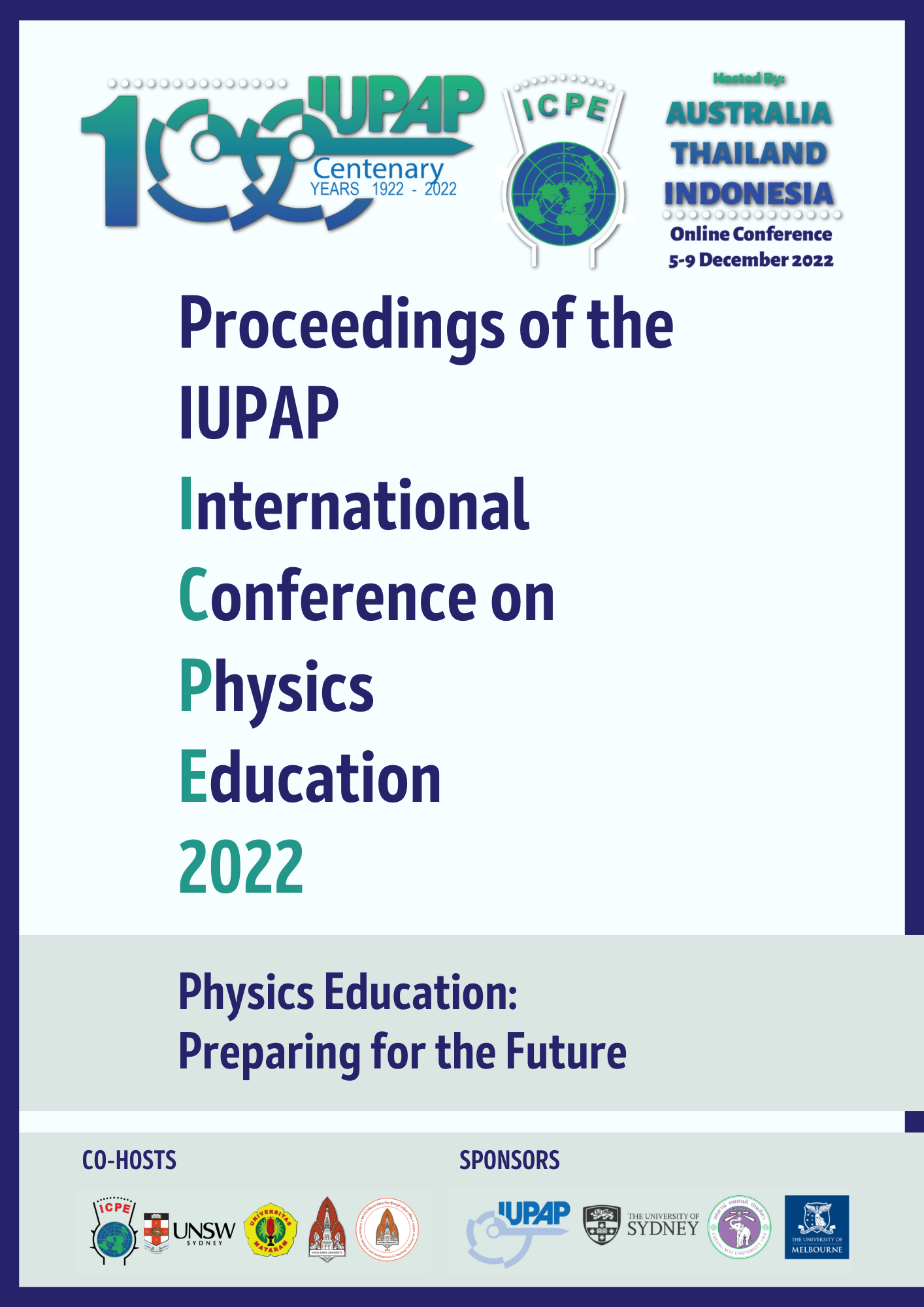The impact of inquiry-based laboratories on improving pre-service teachers’ experimental competency
Keywords:
inquiry-based laboratory, experimental competency, General Physics LaboratoryAbstract
In the study we are presenting, the effects of inquiry-based laboratories on the experimental competency of pre-service physics teachers have been analyzed. An experimental quantitative analysis method, the static-group pretest-posttest design, has been utilized. A total of 32 pre-service physics teachers participated in the experimental group. To observe the experimental competency level development of pre-service physics teachers, Physics Lab Inventory of Critical thinking (PLIC) test and experimental competency test were used (Walsh et al., 2019). The PLIC is a standardized assessment instrument to determine the degree to which students develop these skills through instructional laboratories. The PLIC test is composed of four scales (evaluating models, evaluating methods, suggesting following-ups and normalized score) and these scales aim to test a part of experimental competencies.
Inquiry-based laboratory (IBL) is understood as an organization method in which learners use experiments to acquire knowledge and form personal competency in different openness levels. IBL is considered as an inquiry-based learning method in the experimental module to develop student engagement (Smallhorn et al., 2015). IBL approaches are more student-involved and develop the scientific process skills (Kolkhorst et al., 2001). IBL attracts the active participation of students for experimental modules. Students prefer to study IBL over traditional laboratory (Parappilly et al., 2013). IBL practices enable the learners who take part in the process to improve students' scientific process skills of pre-service science teachers (Yakar & Baykara, 2012). Therefore, in this study, we have used IBL in the General Physics Laboratory to develop students' experimental competency.
Data obtained from data collection tools were evaluated using a variety of analysis methods available in SPSS 20. For the resolution of data and illustrating whether there was a meaningful difference between pretest and posttest scores, the PLIC test, experimental competency test, and paired Samples t-Test were used. In sum, the first result evaluated the effectiveness of IBL for the General Physics Laboratory course. IBL enhanced pre-service teachers' experimental competency. The second result is the development level of pre-service teachers’ behavioral indicators in the experimental competency framework. There were 14.63% pre-service teachers who achieved at behavioral level 3 and 85.37% pre-service teachers who achieved behavioral level 2. The most developed behavioral indicators of them were 1.3 Determine the purpose of the experiment and 2.1 Determine the experiment instruments to be used; and the least was 2.7 Suggest ideas for improving equipment laboratory.
REFERENCESKolkhorst, F. W., Mason, C. L., DiPasquale, D. M., Patterson, P., & Buono, M. J. (2001). An inquiry-based learning model for an exercise physiology laboratory course. Advances in physiology education, 25(2), 45-50.
Siddiqui, S., Zadnik, M., Shapter, J., & Schmidt, L. (2013). An inquiry-based approach to laboratory experiences: Investigating students' ways of active learning. International Journal of Innovation in Science and Mathematics Education, 21(5).
Smallhorn, M., Young, J., Hunter, N., & Da Silva, K. B. (2015). Inquiry-based learning to improve student engagement in a large first year topic. Student Success, 6(2), 65-72.
Walsh, C., Quinn, K. N., Wieman, C., & Holmes, N. G. (2019). Quantifying critical thinking: Development and validation of the physics lab inventory of critical thinking. Physical Review Physics Education Research, 15(1), 010135.
Yakar, Z., & Baykara, H. (2014). Inquiry-based laboratory practices in a science teacher training program. Eurasia Journal of Mathematics, Science and Technology Education, 10(2), 173-183.
Downloads
Published
Issue
Section
License
Authors who publish with the Proceedings of the International Conference on Physics Education 2022 agree to the following terms:
a) Authors retain copyright and grant the journal right of first publication with the work simultaneously licensed under a Creative Commons Attribution License (https://creativecommons.org/licenses/by/4.0/) that allows others to share the work with an acknowledgement of the work's authorship and initial publication in this journal.
b) Authors are able to enter into separate, additional contractual arrangements for the non-exclusive distribution of the journal's published version of the work (e.g., post it to an institutional repository or publish it in a book), with an acknowledgement of its initial publication in this journal.
c) Authors are permitted and encouraged to post their work online (e.g., in institutional repositories or on their website) prior to and during the submission process, as it can lead to productive exchanges, as well as earlier and greater citation of published work (See The Effect of Open Access - http://opcit.eprints.org/oacitation-biblio.html).
Privacy Statement The names and email addresses entered in the Proceedings of the International Conference on Physics Education 2022 site will be used exclusively for the stated purposes of this journal and will not be made available for any other purpose or to any other party.
